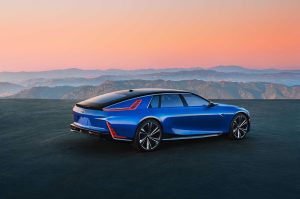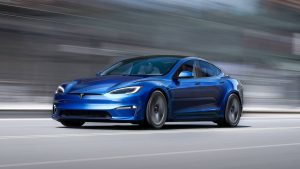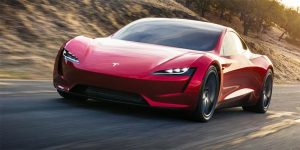When it comes to choosing a car, consumers have more options than ever before since environmental issues and technology developments are changing the automotive sector. The most popular choices are hybrid and electric vehicles (EVs), which provide environmentally beneficial substitutes for conventional gasoline-powered automobiles. Making an informed choice, however, requires knowing how these two kinds of cars differ from one another. We’ll examine the main features of electric and hybrid vehicles in this thorough comparison guide, highlighting their benefits and drawbacks.
Overview
Electric motors are the only source of power for electric cars, sometimes referred to as electric vehicles (EVs), and they store energy in rechargeable batteries. When compared to traditional gasoline-powered cars, these cars are cleaner and more environmentally friendly because they have zero tailpipe emissions.
In contrast, a hybrid vehicle combines an internal combustion engine (usually powered by gasoline) with a battery pack and an electric motor. varied hybrid designs are available, with varied levels of electric propulsion and fuel efficiency, such as plug-in hybrids (PHEVs), series hybrids, and parallel hybrids.
Drivetrain
The powertrain configurations of electric and hybrid cars are among their main differences.
Electric Vehicles (EVs)
High-capacity lithium-ion batteries provide the energy for the electric motors in EVs. Depending on the type of vehicle and the driving environment, these rechargeable batteries can usually go several hundred miles on a single charge. Because electric vehicles don’t need conventional gasoline engines, transmissions, or exhaust systems, their powertrains can be more straightforward and efficient.
Hybrid Automobiles
Hybrid cars combine an electric motor and internal combustion engine. Depending on the hybrid setup, the engine can either power the wheels directly or function as a generator to charge the battery. The vehicle can be propelled by the electric motor and engine in parallel hybrids either independently or concurrently. In series hybrids, on the other hand, the engine acts as a generator to recharge the battery while the electric motor is the main source of propulsion. Conversely, plug-in hybrids provide the option to recharge the battery using an external power source, extending the range of driving on electricity alone.
Range and Fuel Efficiency
For many car owners, especially those who want to cut expenses and their environmental impact, driving range and fuel efficiency are important factors.
Electric Vehicles (EVs)
Compared to internal combustion engines, electric motors in EVs have high energy conversion rates and low energy losses. EVs are known for their exceptional efficiency. Additionally, compared to gasoline-powered cars, electric vehicles have reduced fuel (or electricity) expenses per mile, particularly in areas with reasonably priced electricity or renewable energy sources. Some consumers are still worried about range anxiety, though, because longer trips requiring completely electric automobiles require access to a charging infrastructure.
Hybrid automobiles
By combining electric propulsion with engine power, hybrid automobiles are able to achieve higher fuel efficiency than conventional gasoline-powered vehicles. Depending on the hybrid’s kind and driving circumstances, different fuel savings amounts apply. While series hybrids may perform better on highways by maximizing engine efficiency, parallel hybrids usually achieve greater fuel economy in cities where the electric motor can help during low-speed running. Plug-in hybrids are a good option for commuters who have access to charging stations because they offer the added benefit of longer driving ranges on electricity alone.
Effect on the Environment
Cutting greenhouse gas emissions and combating climate change drive electric and hybrid car adoption.
Electric cars
EVs benefit the environment since they emit no exhaust emissions. However, electrical supply source and other factors determine how ecologically friendly electric vehicles are. Electric cars release less carbon dioxide than gasoline-powered cars in locations where solar, wind, or hydropower dominate the electrical grid. Electric vehicles provide environmental benefits, however fossil fuel-dependent power supplies can reduce their environmental impact.
Hybrid Cars
Although hybrid automobiles use less fuel than gasoline-powered ones, their exhaust emits pollutants. Because of lower fuel usage, they emit less than regular cars. In cities with stop-and-go traffic, hybrid vehicles reduce air pollution by reducing gasoline-powered vehicle emissions.
Consider Price Points
Compare electric and hybrid car prices, including startup and ongoing maintenance.
Electrical Vehicles
Electric automobiles are more expensive than gasoline-powered vehicles due to battery technology. Government incentives, tax credits, and rebates can help buyers of electric cars pay for them. EV owners pay less for gasoline and maintenance due to the streamlined drivetrain architecture.
Hybrid cars
Budget-conscious buyers prefer hybrids over electric automobiles because they cost less. Hybrid cars cost more to maintain but save money on gasoline due to their more complex engine systems.
Facilities/Availability
Refueling stations and charging facilities are important for electric and hybrid car customers.
Electric Cars
Electric car adoption depends on charging station availability and rate. Public charging stations are increasing, however charging times vary by automobile battery capacity and manner. Fast-charging stations recharge faster but are less common than gas stations. Home Level 2 chargers and EV charging stations let EV owners charge overnight.
Hybrid Cars
Hybrid cars can be refueled at regular gas stations, giving drivers more refilling alternatives. This solves range and charging infrastructure issues. Hybrid automobiles are suitable for users without home charging stations because they do not require plug-in charging.
Automobile Experience
Driving performance, response, and sensation differ between electric and hybrid cars.
Electric automobiles
Electric automobiles are quiet, smooth, and fast due to their fast torque. Slower driving without engine noise or vibration is quieter. Vintage gasoline-powered vehicles’ engine noises and tactile feedback may be missed by other drivers.
Hybrid Cars
Using electric and gasoline propulsion, hybrid cars may be more pleasant for typical car drivers. Even though hybrids are slower than electric automobiles, they are reliable and effective for daily travel.
Conclusion
In conclusion, electric and hybrid vehicles are fantastic for ecologically conscious drivers. Electric vehicles are popular with environmentally conscious consumers who have access to charging infrastructure because to their energy efficiency, long-term cost savings, and emission-free driving. Hybrid vehicles are more comfortable to drive and have more range and flexibility, making them suitable for more purchasers. Hybrid or electric cars depend on personal taste, lifestyle, and driving style. Customers may make an informed choice that aligns with their goals and beliefs by carefully analyzing the differences in this detailed comparison guide as we move toward a more sustainable future.
FAQs
1. Are electric cars more expensive than hybrids?
Due to battery technology, electric automobiles cost more upfront than hybrids. However, government incentives, tax credits, and rebates can offset upfront costs for electric car owners.
2. What charging choices and duration do electric cars have?
Electric car charging periods vary by method and battery capacity. Fast-charging stations are uncommon than gas stations but recharge faster. Level 2 and home charging stations allow overnight EV charging.
3. Do gas stations sell hybrids or demand plug-ins?
At petrol stations, hybrid automobiles can fill without plugging. This solves range and charging infrastructure difficulties.
4. What is electric and hybrid driving range?
Electric vehicles may travel several hundred kilometers on a charge, depending on kind and conditions. Plug-in hybrids drive longer on gas and electricity.
5. What are electric and hybrid automobiles’ environmental advantages over gasoline cars?
Electric and hybrid cars produce less pollution and greenhouse gasses. Hybrids emit less than electric automobiles due to fuel efficiency. Electric automobiles’ environmental impact depends on electricity generation.








